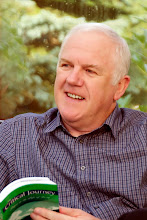Learning to Stand
The final third of Watchmen Nee’s life was without doubt the hardest.
In early 1949 the Communist Army entered Peking, and by October had proclaimed the People’s Republic of China. Whilst they espoused freedom of religion, it was inevitable that there would be a clash with Christianity, and as a prominent Christian leader Nee would soon learn what it meant to ‘stand’ against the most fierce opposition.
In his exposition of Ephesians, recorded in Sit, Walk, Stand, Nee showed that spiritual conflict was unavoidable. ‘Christian experience begins with sitting and leads to walking,’ he wrote, ‘but it does not end with these. Every Christian must learn to stand. Each of us must be prepared for the conflict.’ His thinking was based on the repeated use of the word ‘stand’ in Paul’s description of the spiritual battle in Ephesians 6:10-20, and he saw the willingness to stand fast despite opposition from Satan and the powers of darkness as the third important principle of the Christian life.
Nee was careful to point out that believers do not need to gain the victory over the enemy by their own efforts. Christ has already defeated Satan at the cross, so all we have to do is to hold the ground that he has won. We fight only to maintain and consolidate his victory. If we find ourselves in spiritual conflict it is because Satan wants to dislodge us from the ground Christ has given us, but all we need to do is to ‘stand’ and to exercise our faith in him, using the authority of his name. We do not fight for victory, but from victory, and the key is to live in dependency upon Christ. ‘Only those who sit can stand,’ he insisted. ‘Our power for standing, as for walking, lies in our having first been made to sit together with Christ. The Christian’s walk and warfare alike derive their strength from his position there.’
He saw the conflict described by Paul in Ephesians as being real and powerful, directed firstly at our personal walk with God, and then secondly at the work of the Lord. He loved to share stories of how the power of God had triumphed over the demonic forces behind the idolatry and superstition so common in China, but he was aware how real the battle was. Just how fierce this conflict could become he would discover for himself as Communist rule took hold.
From the start of the Communist takeover he sensed that time was short and he urged his followers to seize every opportunity to share their faith freely. He gave himself to the urgent preparation of written materials, working hard into the night so the truth could be shared easily with others. At first he perhaps naively thought that some degree of co-operation with the new government might be possible, but the presence of informers in church meetings, and the start of ‘accusation’ meetings (to expose those who did not hold to the communist beliefs) showed this could never be so.
At his suggestion, many of the main leaders of the Little Flock left China for other parts of South East Asia, but Nee himself bravely remained in Shanghai. ‘It has taken so long to build up the church there. Can I possibly desert them now?’ he asked. ‘Did not the apostles remain in Jerusalem under such conditions?’
By 1951 most expatriate missionaries had been forced to leave the country, and the government had organised existing churches under one umbrella, the Three Self Reform Movement of the Church in China (that is, self-governing, self-propagating and self-financing). In fact it was directed by the government and had no voice of its own. Its members were encouraged to denounce any who had associations with imperialistic foreigners, and fearing for their safety the majority went along with this.
Attention turned to Nee later that year when he was publicly denounced by a former church member, and eventually in April 1952 (he was then 50 years old), he was arrested for being a ‘lawless capitalist.’ His case eventually was heard in 1952 when a series of trumped-up charges was brought against him, followed by a large ‘accusation meeting’ in the very hall where he had taught the Bible and led his people in prayer. In April he was found guilty of all charges and sentenced to 15 years imprisonment with reform by labour.
Conditions in the prison were tough, and the day divided into eight hour sections of labour, education and rest. He was not allowed a Bible and was subject to communist indoctrination. He was allowed only an occasional visitor, and spent his time translating scientific books into Chinese. As he waited for his release news came that his wife, Charity, and fallen from a chair and died, presumably of a stroke. Nee was heart-broken and must have felt his isolation keenly.
His release date came and went, but he was eventually transferred to an open prison and work camp. However, the climate and physical toil affected him badly and his health deteriorated. Almost 20 years after his sentence had begun, and with no end to his imprisonment in sight, Watchmen Nee passed into the Lord’s presence on 1 June 1972, aged 69. He had been a true soldier of Jesus Christ, and a faithful witness to the very end.
Nee is remembered mostly for his Bible teaching and his writings, although most were published after his death and he was never aware of the esteem in which he is held in by so many. But he also stands within that elite group of followers of Christ who have been called to suffer for him, and to lay down their lives for him. As such his live speaks a message as eloquently as any book, summed up in his own watchword: ‘I want nothing for myself; I want everything for my Lord.’
Subscribe to:
Post Comments (Atom)

No comments:
Post a Comment